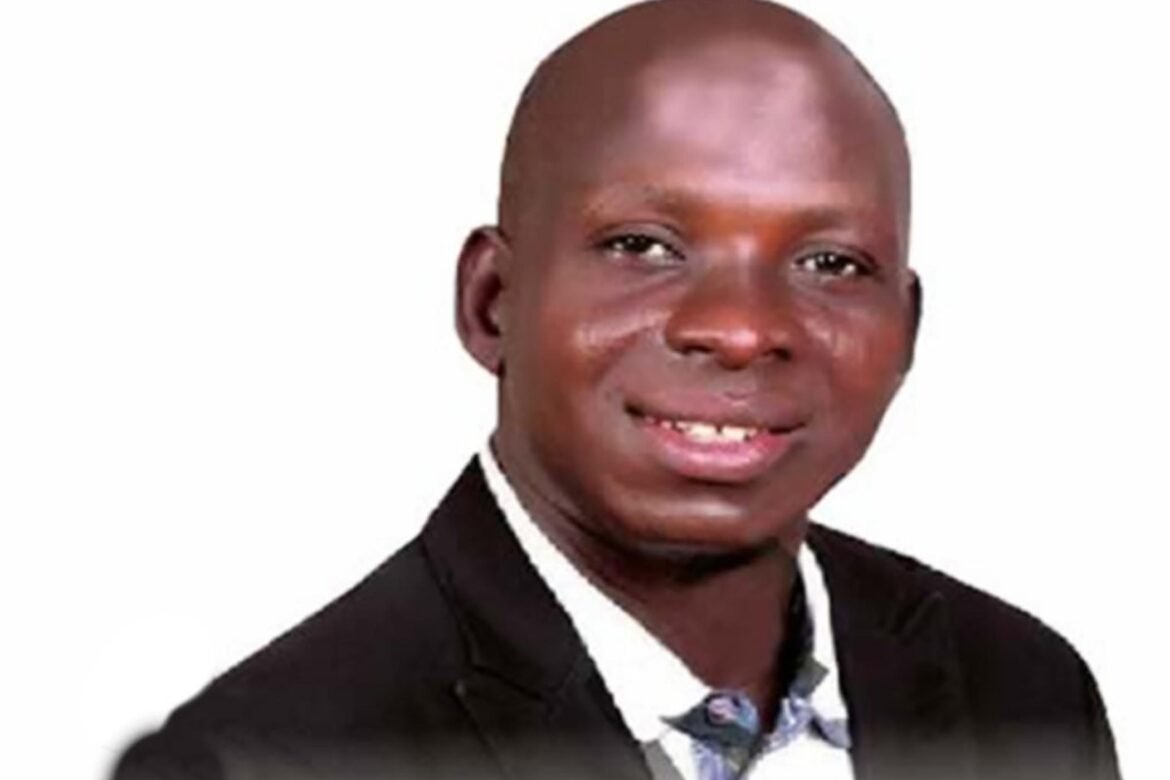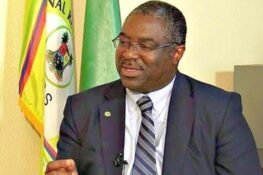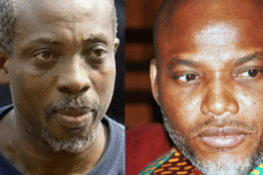The moment Nnamdi Kanu, leader of the Indigenous People of Biafra placed his foot on Nigeria soil in October 2015, he put the federal government in a dilemma.
Still, he was arrested barely days on arrival with his British and Nigerian passports seized. The government was damned if it allowed Kanu to openly propagate his secessionist ideas.
And it was damned if it imprisoned him. At best, allowing Kanu to freely express his ideas would lead to civil unrest, which was what happened, anyway.
At the very worst, his actions would inspire a real movement for secession or even a second civil war. On the other hand, imprisoning Kanu would make him a hero, a symbol of resistance and p of hope against political repression.
Now, that came close to happening. His year long detention was causing just as much problems for the government as his freedom and public expressions.
That was until he fled the country in the face of a military crackdown on the movement he led. And as for those foot soldiers who were at the forefront of his agitation, they were left to their own defences.
Under the conditions Kanu was granted bail, he couldn’t leave the country and had no passport to so. But somehow he did.
And by issuing him another passport, the British government took the problem off the hands of the Nigerian state. But what really damaged Kanu as a political force was the fact that he fled and went into hiding.
Under the conditions Kanu was granted bail, he couldn’t leave the country and had no passport to so. But somehow he did
It’s possible he was simply tricked by the British government to weaken his appeal or that he was not ready to sacrifice his freedom for the Biafra cause.
Either way, the Nigerian government still puts on a pretence that he is wanted for treason and for jumping bail. But the reality is that they are free of his troubles and he no longer tops their list of the most wanted.
Ibrahim Shekau could very well be the most wanted man in Nigeria today. Boko Haram has been responsible for the deaths of thousands of people.
Millions have been displaced from their homes in the northeast. There is no doubt that his capture would be a major boost to the military and give credibility to the insistence that Boko Haram has decimated.
Yet, in spite of the symbolic victory the search and capture of Shekau will give the military, he rarely features in the news.
The military no longer says anything on whether he is dead or alive. Not a word has been said recently whether a hunt for him is still in progress.
On more than one occasion, the Boko Haram leader was reported to have been killed only for him to resurface in a video.
Yet, in spite of the symbolic victory the search and capture of Shekau will give the military, he rarely features in the news. The military no longer says anything on whether he is dead or alive
There were even suggestions that more than one individual has taken on the identity of Shekau. When it comes the Boko Haram leader, it has become hard to separate fact from fiction.
What is certain is Shekau and group of terrorists are no longer as fearsome as they once were. That the military is recording more casualty figures than the civilian population is one sign that the Nigerian Army is succeeding in shielding the general populace from the worst of Boko Haram.
It now seems like a century ago when since Chukwudimeme ‘Evans’ Onwuamadike was captured by the Nigerian Police and charged to court for mastering the kidnapping of wealthy citizens for ransom.
But before his capture, there was no time Evans was declared wanted by the police and his name was not known to the public.
And what caught the attention of the public wasn’t just his criminal activities but also the billionaire lifestyle he lived.
Here was someone alleged to have blood on his hands, yet his family, friends, and associates were oblivious to his double life.
Even after he was captured, some twisted individuals expressed admiration for him and were almost elevating to the status of a hero and a victim rather than a criminal.
But Evans was the first glimpse Nigerians got into the lucrative crime of kidnapping and life in the criminal underworld.
Evans ran a very sophisticated operation, managing to gather information about his targets, their bank details, address and daily routine.
All this, he did right under the noses of security forces. While the police searched for the unknown kidnappers, he was hiding in plain sight and restricted himself to Lagos and parts of the southeast. The kidnappers in the northern part of country run a different kind of operation.
The lucky ones are those that are able to secure their release within hours or at most a day of being captured by kidnappers.
Evans ran a very sophisticated operation, managing to gather information about his targets, their bank details, address and daily routine. All this, he did right under the noses of security forces
The unlucky ones don’t make it out alive. Those that survive the ordeal, most times come out never to be whole again.
Psychologically, they may never be same again because of the trauma, the beating and torture they had to endure. The beatings and torture are for the kidnap victims whose ransoms are delayed or can’t even find anyone to pay it.
It is an experience no one would want to go through. And in spite of the Boko Haram insurgency that is still ravaging the northeast, there is no criminal activity creating more anxiety and a sense of insecurity than the scourge of kidnapping plaguing most parts of the country.
In recent times, Nigerians could not put faces and names behind the criminal masterminds behind the kidnappings apart from that of the incarcerated Evans.
The only tag available as a form of identity for the kidnappers was Fulani. That was until Hamisu Wadume Bala was declared wanted by the Nigerian Police after escaping from their custody with the aid the military.
And there is a race for the police to find him first as the Nigerian Army has also embarked on a desperate manhunt for him so as to clean up a mess they created before it degenerates to open hostility between the two security outfits.
The Nigerian Police does not have the best of reputations when it comes to corruption, efficiency or even human rights.
But following a recent BBC documentary focusing on the successes of the Intelligence Response Team in fishing out kidnappers, it has been riding on a high. Then this happens.
Three members of same team, Inspector Mark Ediale, Sergeant Usman Danazumi and Sergeant Dahiru Musa, tracking a much sought after kidnapper were killed by soldiers manning the Ibi-Wukari Road in Taraba.
They succeeded in capturing Wadume only to be felled by bullets from soldiers on their way back to their base.
Everything about the aftermath and chain of events leading to the killing of the three police officers is bad for the army.
In spite of the Boko Haram insurgency that is still ravaging the northeast, there is no criminal activity creating more anxiety and a sense of insecurity than the scourge of kidnapping plaguing most parts of the country
It exposes corruption in the army and suggests some of its soldiers have links to a criminal enterprise specialised in kidnappings.
It also raises questions about procedures in acting and responding to emergency security situations based on intelligence from the public.
According to reports from the media, no attempts were made to verify the identities of police officers information the soldiers got that they were kidnappers.
The soldiers bought the narrative of the villagers hook, line, and sinker.
But what is most disturbing is the report that the soldiers before freeing Hamisu Wadume expressed more loyalty to him than the institution that employs them and the Nigerian state.
It wasn’t just his community in Ibi that collected blood money, members of military, informants from the ranks of the police reportedly did so too.
There should be no room in the army or police for personnel who have sold their loyalties to a criminal.
Revelations coming out on Wadume’s operation sounds more like stories from Columbia or Mexico with security personnel aiding and abetting criminal activities.
Imagine having to worry that a security check point you just drove pass could sell you out to kidnappers.
Wadume is just one man but was an El Chapo in the making. He was on the road, of not just corrupting Nigeria’s defence establishment but would have eventually destroyed it with his slow poison.
He has caused more harm than Boko Haram. It’s only right that the investigation is being led by the defence headquarters.
Yes, Hamisu’s crimes have caught up with him and overnight, he may have shot himself straight to the top of the list of Nigeria’s most wanted. But Hamisu has dragged down with him, the reputation of the Nigerian Army. He has driven a wedge between the police and the army
In this case, heads have to roll from the very top.
If no top shot in the military is held accountable for the breach in the country’s defense, whether or he is culpable, the seed planted by the kidnapper will only manifest from a different part of the military.
As for the suspect, Wadume, he apparently lives a lavish lifestyle building houses for family and friends, set up businesses and had local officials on his payroll.
His transport business was part of the cover for kidnapping citizens. He operated an organised criminal syndicate.
Yes, Hamisu’s crimes have caught up with him and overnight, he may have shot himself straight to the top of the list of Nigeria’s most wanted.
But Hamisu has dragged down with him, the reputation of the Nigerian Army. He has driven a wedge between the police and the army.
And it’s Nigerians that will suffer the long term consequences if the two institutions cannot get along or the criminality he has exposed them to can’t be stamped out.








